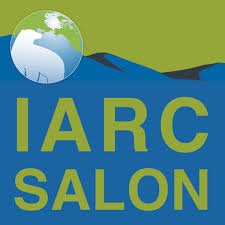
In this digital age, scientific knowledge is as accessible as it has ever been. However, the gap between knowledge and action remains wide. IARC Salon: Science to Action bridges this gap by bringing together scientists, decision-makers, and the public to discuss and debate the latest scientific findings and their implications for policy and action.
– IARC Salon: A Catalyst for Translating Science into Action
The Salon has already kicked off three successful seasons and has a compelling agenda for the future. Previous Salon events have focused on timely topics such as addressing the global non-communicable disease burden; COVID-19; the Global Cancer Observatory; the impact of air pollution; gender equity in cancer research; childhood cancer; and the importance of data science in cancer control.| Event | Theme | key topics |
|—|—|—|
| Season 1, Episode 1 | addressing the global non-communicable disease (NCD) burden.| Cancer and Ncds – The double burden |
| Season 1, Episode 2 | What has COVID-19 taught us about cancer prevention, detection, diagnosis, treatment, and care delivery? | Impact |
| Season 1, Episode 3 | Global cancer Observatory. | Why data |
| Season 2, Episode 1 | Air pollution and cancer: a critical public health challenge. | Smog |
| season 2, Episode 2 | Gender equity in cancer research: advancing scientific excellence, innovation, and impact. | Gender-responsive data |
| Season 2, Episode 3 | Childhood cancer in the developing world: improving outcomes in low-resource settings. | Children |
| Season 3, Episode 1 | The role of data science to transform cancer control and research. | Artificial intelligence |
| Season 3,Episode 2 | Reaching Net Zero: Climate change and the cancer community | Capacity |
– In-Depth Explorations: Bridging Research and Policy
IARC Salons present an prospect to delve deep into the complexities of global health challenges,outlining the intricate connections between research and policy. The salons, hosted by esteemed scientists and policymakers, serve as platforms to facilitate cross-disciplinary dialogues, fostering a rich exchange of ideas and perspectives. In this spirit of collaboration, the salons illuminate the pathways for translating scientific findings into actionable policies that can steer the course of global health towards a more equitable and sustainable future.
– Empowering evidence-Based Decision-Making
Empowering Evidence-Based Decision-Making
Through the rigorous scientific assessments conducted by our multidisciplinary expert panels, IARC provides a solid foundation for evidence-based decision-making in cancer prevention and control.Our monographs, systematic reviews, and other publications synthesize the latest scientific findings and provide clear, concise, and actionable recommendations. These resources empower policymakers, public health officials, healthcare providers, and the public with the knowledge they need to make informed decisions that safeguard the health of individuals and communities. By translating science into practical action, we contribute to reducing the global cancer burden and improving the lives of millions worldwide.
– Shaping the future through Collaborative Innovation
By fostering a collaborative and inclusive environment where scientists, policymakers, and stakeholders can come together, we can accelerate the translation of research insights into tangible solutions. Through workshops, roundtable discussions, and knowledge-exchange events, we nurture a network of innovators and encourage cross-disciplinary collaborations. Our collective expertise empowers us to identify pressing challenges,develop evidence-based approaches,and drive transformative change across sectors.
Closing Remarks
As this IARC Salon draws to a close, we urge you to embrace the transformative power of science in shaping a healthier future. Let the insights shared here inspire you to spark collaborations, challenge assumptions, and implement innovative approaches that translate scientific knowledge into meaningful action. Remember, every step we take towards evidence-informed decision-making brings us closer to a world where cancer prevention and control measures are guided by the unwavering principles of science.